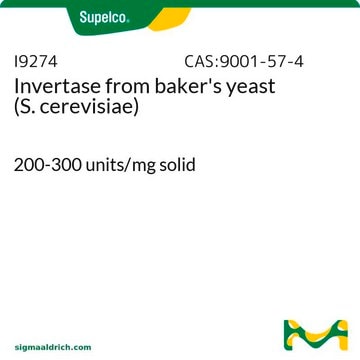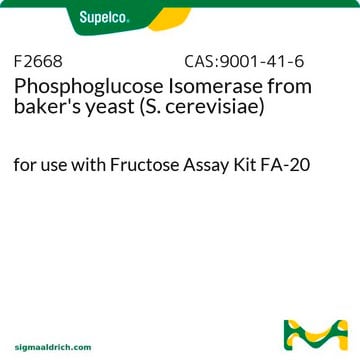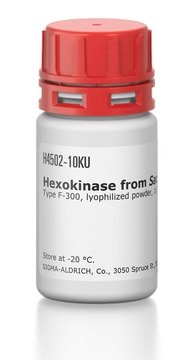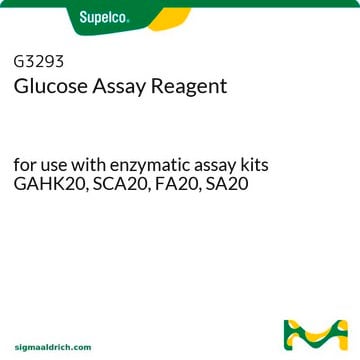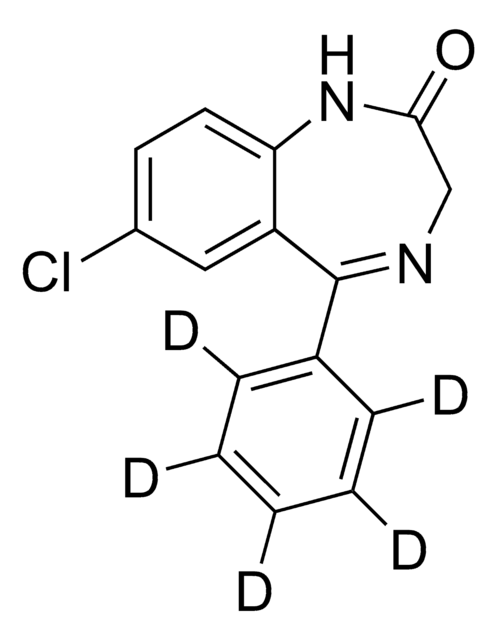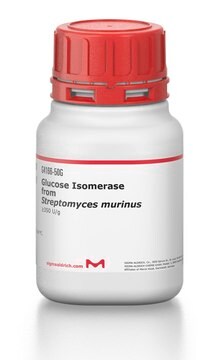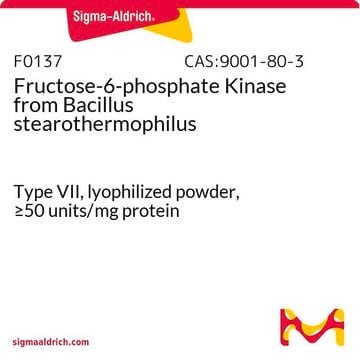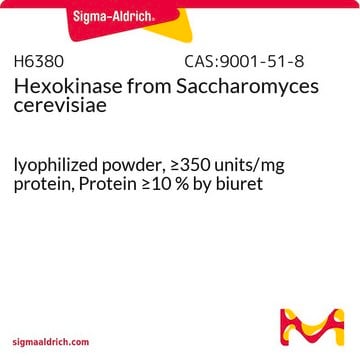P5381
Phosphoglucose Isomerase from baker′s yeast (S. cerevisiae)
Type III, ammonium sulfate suspension, ≥400 units/mg protein (biuret)
Synonym(s):
D-Glucose-6-phosphate ketol-isomerase, PGI, Phosphosaccharomutase
About This Item
Recommended Products
biological source
bakers yeast
type
Type III
form
ammonium sulfate suspension
specific activity
≥400 units/mg protein (biuret)
mol wt
tetramer 119,500 Da±600
concentration
≥3 mg/mL protein Biuret
technique(s)
activity assay: suitable
color
white
Protein ID accession no.
UniProt accession no.
storage temp.
2-8°C
Gene Information
yeast ... PGI1(852495)
Looking for similar products? Visit Product Comparison Guide
General description
Phosphoglucose Isomerase ubiquitous multifunctional cytosolic protein. This dimeric protein has a molecular weight of approximately 119,500 ± 600 and is composed of four subunits that are nearly identical.
Application
- to convert fructose-6-phosphate to glucose-6-phosphate during the enzymatic measurement of serum mannose levels.
- as one of the enzymes in the series of four enzyme-coupled reactions to measure phosphomannomutase (PMM) activity.
- to convert fructose to glucose while evaluating fructose content in kudzu roots.
Biochem/physiol Actions
Unit Definition
Physical form
Signal Word
Danger
Hazard Statements
Precautionary Statements
Hazard Classifications
Resp. Sens. 1
Storage Class Code
10 - Combustible liquids
WGK
WGK 1
Flash Point(F)
Not applicable
Flash Point(C)
Not applicable
Personal Protective Equipment
Certificates of Analysis (COA)
Search for Certificates of Analysis (COA) by entering the products Lot/Batch Number. Lot and Batch Numbers can be found on a product’s label following the words ‘Lot’ or ‘Batch’.
Already Own This Product?
Find documentation for the products that you have recently purchased in the Document Library.
Customers Also Viewed
Articles
Instructions for working with enzymes supplied as ammonium sulfate suspensions
Our team of scientists has experience in all areas of research including Life Science, Material Science, Chemical Synthesis, Chromatography, Analytical and many others.
Contact Technical Service
